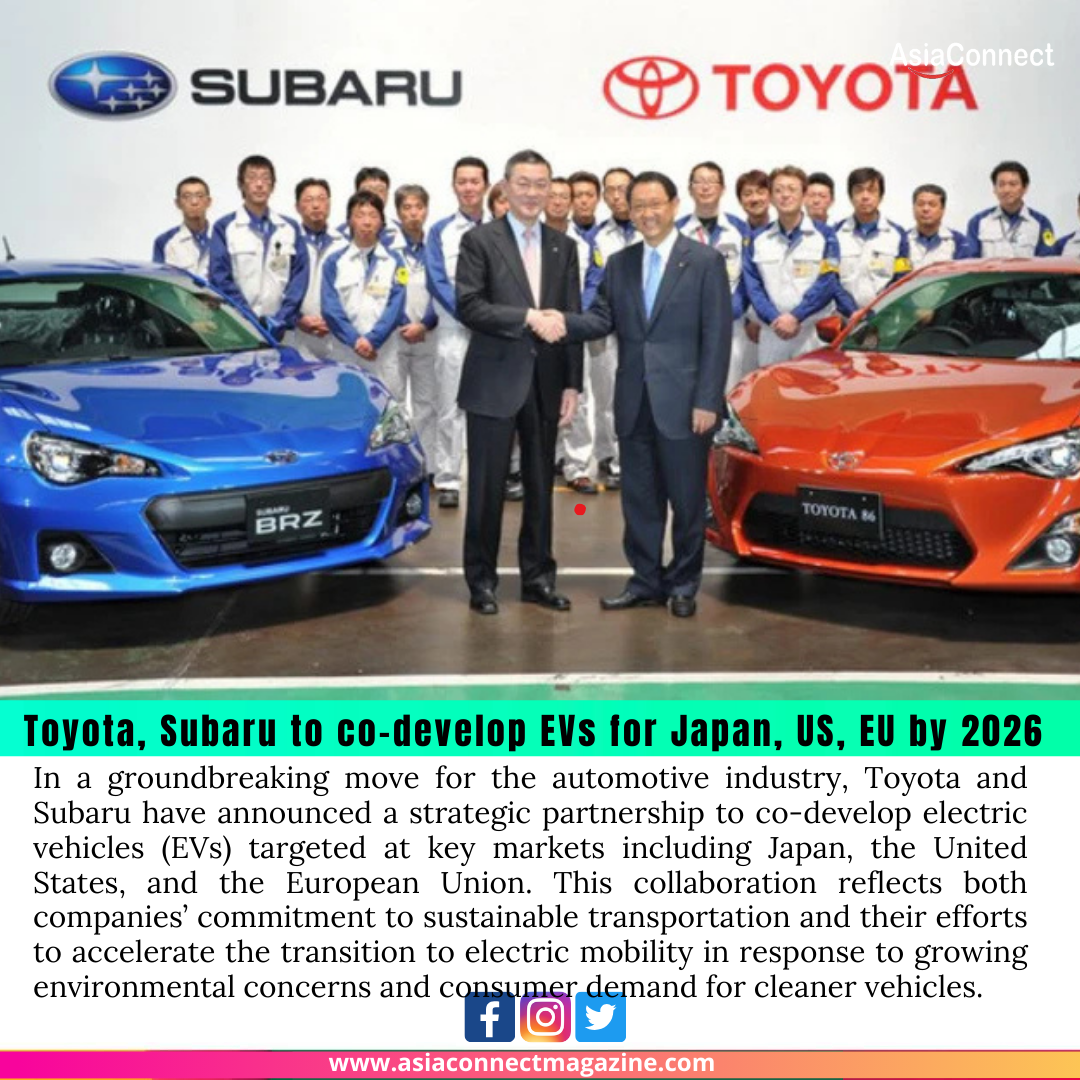In a groundbreaking move for the automotive industry, Toyota and Subaru have announced a strategic partnership to co-develop electric vehicles (EVs) targeted at key markets including Japan, the United States, and the European Union. This collaboration reflects both companies’ commitment to sustainable transportation and their efforts to accelerate the transition to electric mobility in response to growing environmental concerns and consumer demand for cleaner vehicles.
The Vision Behind the Partnership
As the automotive industry shifts toward electrification, major players are recognizing the necessity of collaboration to leverage technology, reduce costs, and bring innovative products to market more swiftly. Toyota, a leader in hybrid technology and an established name in the EV sector, brings extensive experience and resources to the table. On the other hand, Subaru, known for its all-wheel-drive vehicles and outdoor-oriented design, offers unique insights into performance and utility that can enhance the development of electric SUVs.
The joint venture aims to capitalize on both companies’ strengths, combining Toyota’s expertise in battery technology and manufacturing with Subaru’s knowledge of vehicle dynamics and all-wheel-drive systems. This partnership will not only bolster their competitive positions but also contribute to their sustainability goals.
Key Developments and Timeline
Production of the new electric SUV is set to commence at Subaru’s Yajima plant in January 2026. This facility, renowned for its high-quality manufacturing standards, will play a crucial role in producing the next generation of electric vehicles designed for a global market. The two companies are targeting the increasing demand for SUVs, which continue to dominate vehicle sales in many regions, particularly in the US and Europe.
The collaboration will also focus on developing a versatile platform that can accommodate various EV models. This modular approach will enable both Toyota and Subaru to efficiently produce a range of vehicles that cater to different consumer preferences and market demands.
Market Implications
With the automotive industry undergoing a seismic shift toward electrification, the partnership between Toyota and Subaru comes at a pivotal moment. Regulatory pressures are intensifying globally, with many countries setting ambitious targets for reducing carbon emissions and phasing out internal combustion engines. The collaboration is well-timed to address these challenges and align with governmental policies promoting electric vehicle adoption.
The new electric SUV is expected to compete in a crowded market filled with established brands and emerging players. By leveraging their combined resources, Toyota and Subaru aim to deliver a vehicle that not only meets consumer expectations for performance and safety but also offers cutting-edge technology and sustainability features.
Consumer Expectations
As consumers become more environmentally conscious, their expectations for electric vehicles are evolving. Factors such as range, charging infrastructure, performance, and overall value will play critical roles in their purchasing decisions. Toyota’s experience with hybrid technology and Subaru’s reputation for reliability and performance will be essential in designing a vehicle that resonates with eco-conscious buyers.
Moreover, both companies are likely to invest in developing charging solutions and infrastructure, ensuring that their customers have access to convenient charging options, which is vital for promoting the widespread adoption of electric vehicles.
Conclusion
The partnership between Toyota and Subaru marks a significant step in the automotive industry’s transition to electric mobility. By co-developing EVs tailored for key markets by 2026, they are not only strengthening their positions in an increasingly competitive landscape but also contributing to global sustainability efforts. As the production of the new electric SUV approaches, all eyes will be on how this collaboration unfolds and what it means for the future of electric vehicles in Japan, the US, and the EU.





